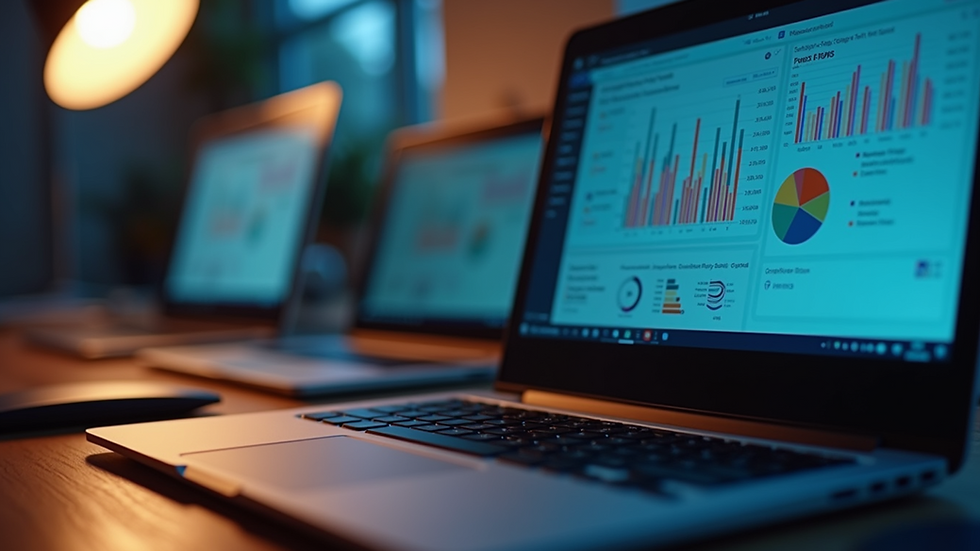Exploring Cutting-Edge Innovations in Real Estate
- Ronnie Taylor Shahnewaz

- Oct 20, 2025
- 4 min read
The real estate industry is undergoing a remarkable transformation driven by technology and new business models. These changes are reshaping how properties are bought, sold, managed, and experienced. From smart homes to blockchain transactions, the innovations emerging today promise to make real estate more efficient, transparent, and accessible. This article explores some of the most exciting advancements in innovative real estate and how they are impacting the market.
The Rise of Smart Homes and IoT Integration in Innovative Real Estate
Smart homes are no longer a futuristic concept but a present-day reality. The integration of Internet of Things (IoT) devices into residential and commercial properties is revolutionizing how people interact with their living and working spaces. These technologies enable automation, energy efficiency, and enhanced security.
For example, smart thermostats learn residents’ schedules to optimize heating and cooling, reducing energy consumption and costs. Voice-activated assistants control lighting, appliances, and entertainment systems, creating a seamless user experience. Security cameras and sensors provide real-time monitoring and alerts, improving safety.
Property developers are increasingly incorporating smart features into new builds to attract tech-savvy buyers. Retrofitting older properties with smart devices is also becoming popular, offering homeowners a way to modernize without extensive renovations.
Actionable recommendation: If you are a property owner or investor, consider installing smart devices that can increase property value and appeal. Start with energy-saving gadgets like smart thermostats and lighting systems, then expand to security and entertainment solutions.

How Blockchain is Transforming Property Transactions and Ownership
Blockchain technology is making waves in real estate by introducing transparency, security, and efficiency to property transactions. Traditionally, buying or selling real estate involves multiple intermediaries, paperwork, and lengthy processes. Blockchain can streamline these steps by creating a decentralized and immutable ledger of ownership and transaction history.
One of the key benefits is the ability to tokenize real estate assets. This means properties can be divided into digital shares, allowing fractional ownership. Investors can buy and sell these shares easily, increasing liquidity in a market that is usually illiquid.
Smart contracts on blockchain platforms automate agreements and payments, reducing the need for lawyers and escrow services. This speeds up closings and lowers costs.
Actionable recommendation: Explore platforms that offer blockchain-based real estate services if you want to invest in fractional ownership or simplify your property transactions. Stay informed about regulatory developments in your region to ensure compliance.

Virtual and Augmented Reality Enhancing Property Viewing Experiences
Virtual reality (VR) and augmented reality (AR) are changing how buyers and renters explore properties. Instead of visiting multiple locations physically, potential clients can take immersive virtual tours from anywhere in the world. This technology saves time and broadens the market reach for sellers and agents.
VR allows users to walk through a 3D model of a property, examining details and spatial layouts. AR can overlay information or design options onto a physical space, helping buyers visualize renovations or furniture placement.
Real estate companies are investing in VR and AR tools to create engaging marketing materials and improve customer satisfaction.
Actionable recommendation: If you are a real estate professional, consider adopting VR and AR technologies to showcase listings. For buyers, use virtual tours to narrow down options before scheduling in-person visits.

Sustainable Building Practices and Green Technologies in Real Estate
Sustainability is a major focus in modern real estate development. Green building practices and eco-friendly technologies are not only better for the environment but also reduce operating costs and attract environmentally conscious buyers.
Examples include solar panels, energy-efficient windows, rainwater harvesting systems, and sustainable building materials. Developers are also designing buildings to maximize natural light and ventilation, improving indoor air quality and occupant comfort.
Certifications like LEED (Leadership in Energy and Environmental Design) have become important benchmarks for sustainable properties.
Actionable recommendation: When developing or renovating properties, prioritize sustainable materials and energy-efficient systems. Highlight these features in marketing to appeal to eco-aware clients.
The Role of Artificial Intelligence in Real Estate Market Analysis
Artificial intelligence (AI) is playing an increasingly important role in analyzing real estate market trends and predicting property values. AI algorithms can process vast amounts of data, including historical sales, economic indicators, and demographic shifts, to provide accurate forecasts.
Real estate professionals use AI-powered tools to identify investment opportunities, optimize pricing strategies, and personalize client recommendations. AI chatbots also enhance customer service by answering queries instantly.
Actionable recommendation: Leverage AI tools to gain insights into market conditions and improve decision-making. Use AI-driven platforms to automate routine tasks and focus on building client relationships.
Embracing Innovative Real Estate Solutions for Future Growth
The real estate sector is ripe for disruption, and embracing innovative real estate solutions is key to staying competitive. Technologies like IoT, blockchain, VR/AR, sustainability, and AI are not just trends but foundational changes that will shape the industry’s future.
For investors, developers, and agents, staying informed and adopting these innovations can lead to better efficiency, higher returns, and improved customer experiences. Whether it is through smart home integration, blockchain transactions, or AI analytics, the opportunities are vast.
To explore more about these advancements and how they can be applied, consider visiting innovative real estate solutions, a resource dedicated to the latest in real estate technology and strategy.
By integrating these cutting-edge technologies and practices, the real estate market can become more transparent, sustainable, and accessible for everyone involved. The future of real estate is here, and it is innovative.




Comments